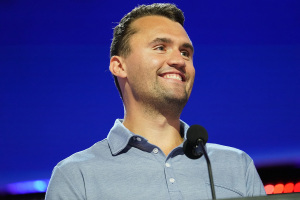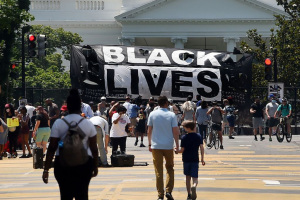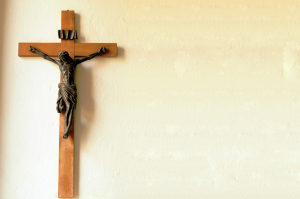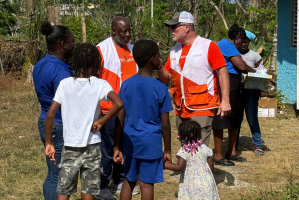Chaplain Explains Why Some Turned to Atheism in the Aftermath of 9/11
Pastors and theologians agree that an individual’s core spiritual beliefs play a significant role in determining whether they will choose to believe in God or turn away from religion altogether in the aftermath of a tragedy such as 9/11.
Kurt Fredrickson, an assistant professor of pastoral studies at Fuller Theological Seminary and a police chaplain, says believers and non-believers alike experienced grief, pain and doubt following the terrorist attacks ten years ago that destroyed the Twin Towers in New York City and the Pentagon in Washington, D.C.
The distinction, he says, is Christians “have a greater ability to go through the trauma, whether it's personal or national... because they have a basic sense of who they are and who God is in their life."
Fredrickson says unbelievers have at their core, an atheistic spirit.
"It's almost like they were on an atheistic path and 9/11 almost became the gasoline on the little spark on [their] life," he said.
That spark was ignited for doctoral student turned militant atheist Sam Harris, when he published his first book, The End of Faith, in 2004 and sparked an entire movement toward atheism. Harris’ book became a bestseller and atheist organization Freedom From Religion Foundation's membership grew by 11,000 within three years of the book's publication.
R. Brad White was once an unshakable atheist. Now a Christian, he engages atheists through his ministry, “Changing the Face of Christianity.”
"When faced with a tragedy like 9/11, Christians lean on God ... whereas atheists will look at that same situation and say, 'God is cruel. Why didn't he stop this from happening?' So they use that 9/11 tragedy to re-enforce their beliefs just like we [Christians] use it to reinforce ours," White said of the unbelievers he ministers to.
Similarly, Fredrickson said if he had the chance to speak with Harris or others who embraced atheism following the attack, he would expect them to say, "I do not want to believe in a God that allows this type of thing to happen."
That kind of doubt in the face of a terrible tragedy is normal, said Fredrickson. While some unbelievers may fall back on their non-theist convictions, others may temporarily look to the church to calm their anxieties.
Fredrickson, who was a pastor in 2001, recalled, "Right after 9/11, scores of people came to church [and] for the next three weeks, our church was full."
"The things that turn people away after an event like 9/11 [are] either that sense of trying to figure out why the bad things happened and you either blame the government or you blame unconfessed sin or you blame the Muslims – you know where you just group the whole religion together and say 'it's Muslims that cause all this," Fredrickson described. "That causes thoughtful people to say, 'Really?' You just can't generalize on all this."
Fredrickson cautions Christians against trying to explain away misfortune.
"I think that one of the worst things that Christians do to people who are facing tragedy is try to come up with an answer or solution for that," he said.
Adam Hamilton, a Methodist pastor and author of Why? Making Sense of God's Will, recalls how, as a young seminarian, Christians tried to console him at the funeral of his youth pastor and the pastor's brother. The two died within minutes of each other in a freak electrical accident.
"One person said 'There must have been sin in their lives and this is why it happened.' Another one said 'No, God loved them so much, he wanted them in heaven.' Another one said 'No, this happened so that someone would give their lives to Jesus,'" he recalled.
At the time, their well-meaning attempts to explain what happened led him to struggle with his faith.
Hamilton remembered thinking, "This doesn't make any sense. Why would God kill my two friends so that one person could give their life to Jesus at the funeral ... They were in the prime of their lives. They could have spent the rest of their lives sharing their testimony and inviting people to Jesus."
Fredrickson was similarly troubled by the stories of 9/11 survivors who proclaimed God had saved them. "Really? You mean the Lord saved you but the Lord said to the other guy who jumped or just got burned, 'No, I'm going to let that one die?’"
"Sometimes the best thing we can do, and the only thing that we can do, is simply to be with people and to say that ‘I don't understand any more than you do why this happened,'" said Fredrickson.
Christians, he said, should help people abide in God's love.
Even after Christians do all these things, Fredrickson says some people still choose not to continue in the faith. Following 9/11, many began attending church. But he added, "After three weeks, attendance goes back to normal."
Distinguishing that group from those whose foundation is Christ, he highlighted, "When you live your life out of that rootedness [in Christ], then you're able to go through the very best of times and the very worst of times. That doesn't mean that the bad times aren't horrible, but you have sort of a centered core that is not just reactionary."



























